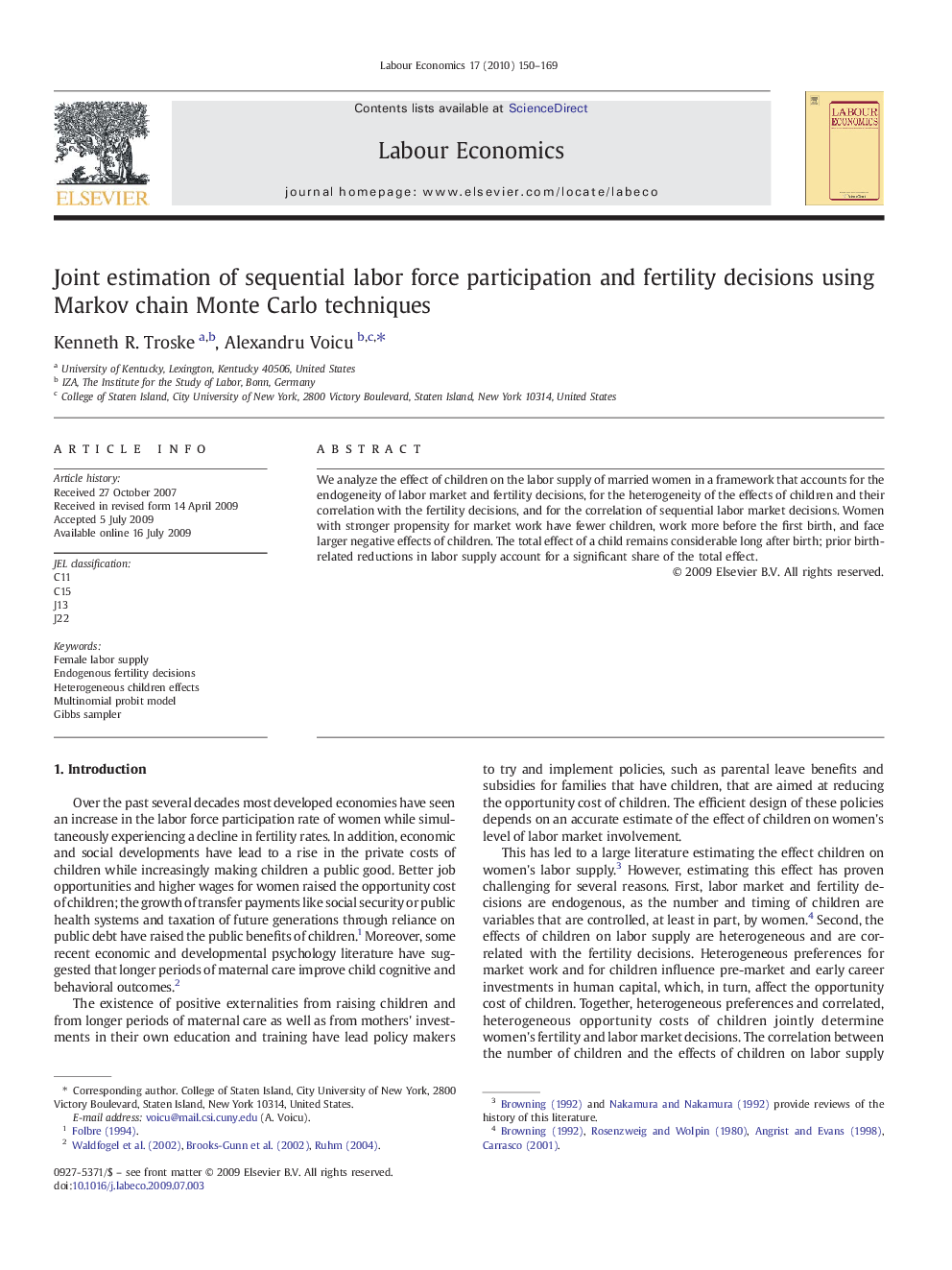| Article ID | Journal | Published Year | Pages | File Type |
|---|---|---|---|---|
| 971893 | Labour Economics | 2010 | 20 Pages |
Abstract
We analyze the effect of children on the labor supply of married women in a framework that accounts for the endogeneity of labor market and fertility decisions, for the heterogeneity of the effects of children and their correlation with the fertility decisions, and for the correlation of sequential labor market decisions. Women with stronger propensity for market work have fewer children, work more before the first birth, and face larger negative effects of children. The total effect of a child remains considerable long after birth; prior birth-related reductions in labor supply account for a significant share of the total effect.
Related Topics
Social Sciences and Humanities
Economics, Econometrics and Finance
Economics and Econometrics
Authors
Kenneth R. Troske, Alexandru Voicu,
